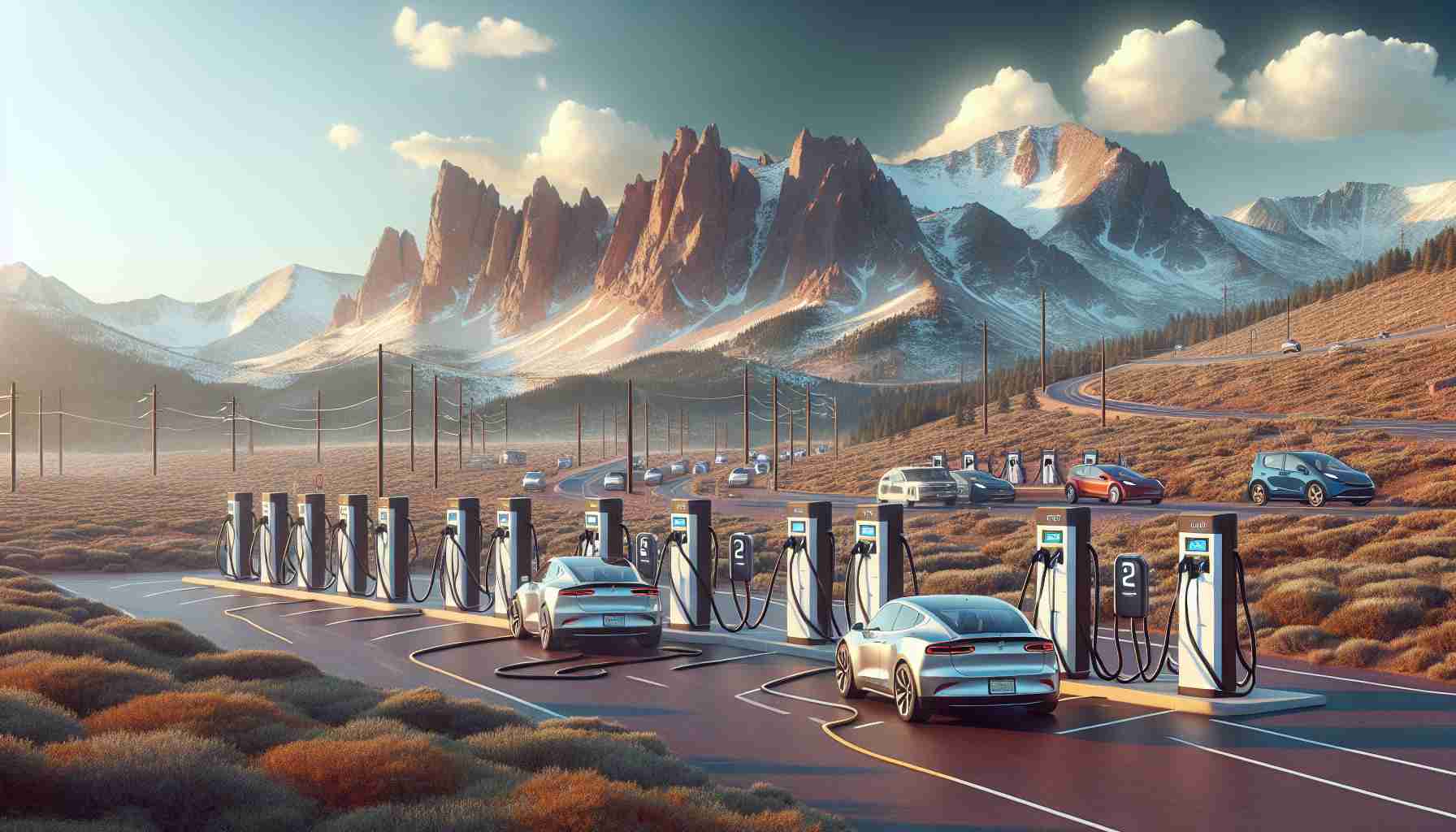Colorado leads the charge for electric vehicles across highways! The state’s ambitious EV Fast-Charging Corridors program has reached a significant milestone, now providing drivers with access to over 80 fast-charging ports at 33 strategically placed locations.
This transformative initiative, backed by a substantial $10 million in state funding and an extra $2 million from local and private partners, has effectively doubled the coverage of DC fast chargers along Colorado’s highways. Previously, only 40% of these corridors were near a fast charger, but now, almost 80% benefit from having one within a 30-mile radius. This represents a major enhancement for electric vehicle enthusiasts statewide.
New charging stations are conveniently located at various sites, such as convenience stores and visitor centers, offering travelers the chance to recharge their vehicles while grabbing snacks or exploring local attractions. All charging locations can be easily found through the ChargePoint app or website.
Rick Wilmer, the CEO of ChargePoint, emphasized the importance of this project as a model of state-level leadership in building a robust charging network for electric vehicles. With these 33 sites now operational and prominently listed on the Colorado Energy Office’s website, the future for EV infrastructure in Colorado looks brighter than ever.
Colorado Sets the Standard for Electric Vehicle Infrastructure
Colorado has emerged as a pioneer in promoting electric vehicles (EVs) with its innovative EV Fast-Charging Corridors program. This initiative not only enhances the charging network for EV users but also positions Colorado as a leader in sustainable transportation solutions across the nation.
### Expansion of Charging Stations
The program has successfully installed over 80 fast-charging ports at 33 strategically located sites throughout the state. This formidable expansion is bolstered by an impressive $10 million in state funding, complemented by an additional $2 million contributed by local governments and private partners. As a result, the availability of DC fast chargers along Colorado’s highways has more than doubled. Previously, only 40% of the highway corridors were near a charging station; this number has now jumped to nearly 80% within a 30-mile radius.
### Convenient Charging Locations
These new charging stations are situated in practical locations, such as convenience stores and visitor centers. This strategic placement allows travelers to recharge their vehicles while indulging in snacks or exploring nearby attractions. Moreover, the ChargePoint app and website provide users with easy access to find charging locations, significantly enhancing the convenience for EV drivers.
### Advantages of the Charging Network
**Pros:**
– **Increased Accessibility:** A larger network of fast-charging stations means that EV drivers have more options and can travel longer distances without range anxiety.
– **Convenience for Travelers:** Locations are chosen for their proximity to amenities, making it easy for users to refresh while their vehicle charges.
– **Reduced Environmental Impact:** The growth of EV infrastructure supports the reduction of carbon emissions by promoting the use of electric transportation.
### Market Trends and Insights
The increase in charging infrastructure aligns with broader market trends indicating a rise in EV adoption. According to recent studies, the demand for electric vehicles significantly surged in recent years, with projections suggesting that EV sales will reach 25% of total vehicle sales in the U.S. by 2030. As more states prioritize green initiatives, Colorado’s proactive approach can serve as a framework for other regions to replicate.
### Limitations
**Cons:**
– **Initial Investment Costs:** Despite the long-term benefits, the initial setup and installation costs for EV charging infrastructure can be high.
– **Network Reliability:** As the number of EVs on the road increases, the demand on charging stations may lead to potential overcrowding, requiring ongoing investment and expansion.
### Future Predictions
As EV technology continues to improve and prices decrease, it’s expected that more consumers will transition to electric vehicles. State programs like Colorado’s will be essential in supporting this shift, making electric vehicles more accessible and practical for everyday use.
### Conclusion
Colorado’s EV Fast-Charging Corridors program is a monumental step towards a greener future for transportation. By increasing the availability of charging infrastructure, the state not only supports current electric vehicle owners but also encourages potential buyers to consider making the switch. For more information on Colorado’s initiatives and EV resources, visit the Colorado state website.
With ongoing developments in EV technology and infrastructure, Colorado’s accomplishments can serve as a model for enhancing electric vehicle adoption across the country.
